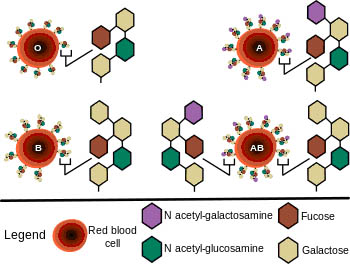Should You Try A Low Carbohydrate Diet?

A low carbohydrate diet can be beneficial to many people.
Understanding carbohydrates is crucial for your health. The fact is we are all different. The amount of carbohydrates you should eat can vary with your health and genetics. For some of us certain foods are like medicine, for others those same foods are like poison. What the “experts” have told us in the past about what we should eat has in many cases turned out to be all wrong.
The majority of grocery store shelves are stocked with processed carbohydrates in the form of breads, cereals, pastas, cookies, crackers, grains and snacks. These starches and sugars are responsible for the high rates of diabetes and inflammatory diseases that we face. Most of these foods have little nutritional value, energy, or fiber. They only make us feel satiated for a short amount of time. People will keep eating carbohydrates to satisfy the body’s ongoing cravings, not realizing that what it really hungers for is protein. Protein makes us feel satisfied. They are the building blocks of our bodies.
When following a low carbohydrate diet, keep in mind that you will have to increase your intake of either fats or proteins, or both, to meet your nutritional needs. A certain percentage of each group must be eaten daily. If you eat say 50% carbohydrates then the other 50% must be in the form of fats and proteins. A good balance to shoot for would be 30% carbohydrates, 40% fats, and 30% protein.
A ketogenic diet requires that you add more healthy fats in place of carbohydrates. Your intake should be lower in carbohydrates 20%, higher fat, 50 to 70%, and approximately 20 to 30% protein.
Since you are eating fewer carbohydrates and sugars, a ketogenic diet forces your body to burn fat for energy. This results in faster weight loss. Some good fats to eat daily are olive oil and coconut oil. Try to eliminate cheap oils like soybean, corn, and canola oil since they have been known to trigger inflammation in some people. Read labels, any oil that says vegetable is probably 100% soybean.
When trying a new diet ease into it. Again, we are all different and we react to foods and changes in our diets differently.
The answer to this question depends again on your genetics and the health of your intestinal tract. What we do know is that highly processed foods and sugars are the worst things we can eat. Sweet drinks, beans, dairy, and wheat products, grains and corn are all high carbohydrate. Potatoes and rice are also high in carbohydrate. Milk and milk products all have sugars that you should eliminate for this diet to work.
Foods we should eat are grass fed, and when possible, organic meats like lamb, beef, goat, and venison. Poultry and cage free or organic eggs are also good choices. Fatty fish like salmon and mackerel are the best choices along with other fatty fish.
The best carbohydrates are vegetables; you are getting nutrition and some fiber when you eat them. When eating vegetables those lowest in carbohydrates are greens, romaine lettuce, and vegetables from the cabbage family like broccoli and brussel sprouts. Avocados are always a good choice since they are high fat and high fiber.
Man has lived on earth for thousands of years. We know that civilization went through floods that may have caused migration to cooler higher elevations changing food availability. Then there was the ice age that also limited food supplies. Civilization adapted to those changes by eating a variety of meat, fish, and seasonal foods that could be grown in short growing seasons. They learned to eat when they could, often going without food for days. They ate what few foods they could store until they could hunt or find the next meal. The food our ancestors ate was totally dependent on the environment.
If your genetics are from Europeans ancestors, you may be able to tolerate a higher carbohydrate and grain diet without getting diabetes. Europeans have farmed for thousands of years, resulting in the ability to adapt to a vegetarian or high carbohydrates diet. If you are from mixed heritage, the ancestor that you got your most dominant genes from will pretty much determine how you should eat.
If your genetics are from indigenous people or people of color, your ancestors probably ate a lower carbohydrate diet and did not develop the ability to digest certain carbohydrates well. If your ancestors went through feast or famine for centuries, as most of our ancient ancestors did, you may have “thrifty genes” in your DNA. For those who inherited “thrifty genes” a high carbohydrate, high calorie, diet can be problematic. High carbohydrate intake for them will almost certainly cause insulin resistance and lead to Type 2 diabetes. For these people overeating carbohydrates, sugars, and starches is a recipe for disaster. You don’t tolerate them well because it is not in your ancestral DNA to eat them, especially in such high amounts.
When you eat too many carbohydrates, especially if you are not very active, your muscles are overloaded and at some point, they stop accepting sugar. The cells then become resistant to insulin that would normally lower the sugar levels in your body. This is how insulin resistance develops.
Some of us are missing certain enzymes to help us metabolize carbohydrates. Others may have damage to the intestinal lining that creates our problems and allows anti-nutrients in our food to do further damage. We are not digesting the proteins efficiently and they attack our own cells. This happens with celiac disease, an autoimmune disease, where proteins do physical damage to our intestinal tract. These are just a few of the reasons why not every carbohydrate is for everyone.
As tempting as those breads, grains, pastas, and cereals are, you will feel much better eating foods from the produce, meat and fish section, if a high carbohydrate diet was not the diet of your ancestors.
The answer to this is very individualized but more than likely has to do with available enzymes and the anti-nutrients in foods. For instance, gluten could have done damage to your gut lining when you already have certain genetic traits and now those genetic traits are turned on. Autoimmunity then develops and your body starts attacking cells that those foods have attached to. If your gut has been damaged, its possible that you do not produce enzymes that help you break down foods.
Those with gut damage may feel like they have no other choice but to eat only meat. Everything else makes them feel bad. There are many stories out there about people who decided to eat only meat. A carnivore diet is the only diet that makes them feel decent. People who react to so many foods may have a problem with oxalates. Oxalates are in almost everything but meat. They can build up in the body due to damage to the gut or nutritional deficiencies. This causes you to feel pain all over when you eat wheat or spinach or other high oxalate foods, but you have only figured out that you feel better just eating meat.
Our cells have carbohydrates on their surfaces. Our blood type determines which carbohydrate chains are present. Some of the carbohydrates like oligosaccharides are involved in cell to cell recognition. It is much like a hidden language that determines if a food, bacteria or pathogen is ok or if it should be attacked. More work and studies need to be done to understand exactly how this works. Many people think that the blood type diet has improved theirs health.
If you are on a carnivore, ketogenic or low carbohydrate diet, be aware that eating a limited variety of foods can cause nutrient deficiencies. Here are some deficiencies to be aware of.
References:
(1) Wlodarek, D 2019, Role of Ketogenic Diets in Neurodegenerative Diseases (Alzheimer’s Disease and Parkinson’s Disease), Nutrients, 2019 Jan 15;11(1). pii: E169
(2) Barnes, J, Joyner, M, 2012, Sugar highs and lows: the impact of diet on cognitive function, Journal of Physiology, 2012 Jun 14.
(3) McClernon, FJ, Yancy WS Jr, Eberstein JA, Atkins RC, Westman EC. 2007, The effects of a low-carbohydrate ketogenic diet and a low-fat diet on mood, hunger, and other self-reported symptoms, Obesity, 2007 Jan;15(1):182-7.
(4) Gibson A, Seimon RV, Lee CM, Ayre J, Franklin J, Markovic TP, Caterson ID, Sainsbury A. 2015, Do ketogenic diets really suppress appetite? A systematic review and meta-analysis, Obesity Review, 2015 Jan;16(1):64-76
(5) Boden, G, Sargrad K, Homko C, Mozzoli M, Stein TP, 2005, Effect of a low-carbohydrate diet on appetite, blood glucose levels, and insulin resistance in obese patients with type 2 diabetes. Annals of internal medicine, 2005 Mar 15;142(6):403-11.

A low carbohydrate diet can be beneficial to many people.

It is just as important to keep your body balanced on the inside.

Can gluten be the cause of your problems? Wheat/Gluten-related disorders are an ongoing topic of research. Medical journals are loaded with articles proving that health risks from consuming gluten are real. It is estimated that 10% of the world’s population has problems consuming wheat and those numbers are thought to be conservative, but for everyone […]

Non-secretors are missing many important and protective antigens and enzymes in their mucous membranes and GI tract that the rest of the population (secretors) have.

Oxalates and foods high in oxalates can be responsible for your pain and inflammation. They can even lead to kidney disease and failure. Oxalates are organic acids found in some of the healthiest foods. Damage to your gut can cause these acids to develop into crystals that can lead to kidney failure and many other […]

The Blood Type diet is one of the most controversial diets known. Many people in the medical community believe that the diet has no scientific basis, but many more people say it has improved their health tremendously. Peter D’Adamo author of the Blood Type Diet books believes that following the diet is the key to […]

